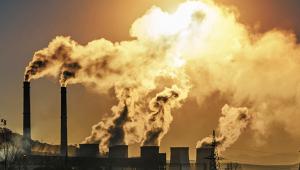The organisation representing developed economies says the country remains one of the most carbon-intensive of its member states and is one of the few where emissions are actually rising.
In a report, the OECD recommends that Australia prices carbon emissions more effectively and does more to integrate renewable energy sources into its electricity sector.
“Australia is home to a tenth of global species and is seen by many as synonymous with pristine coastal areas and an outback brimming with nature,” said OECD Deputy Environment Director Anthony Cox.
“However the country is increasingly exposed to rising sea levels, floods, heat waves, bushfires and drought.
“This makes it all the more important that Australia take a more proactive role in fighting climate change and addressing biodiversity loss.”
Cox was speaking at the launch in Canberra of the OECD’s third Environmental Performance Review of Australia, which indicates that despite progress replacing coal with natural gas and renewables, Australia needs to do more.
It should develop a long-term strategy that integrates energy and climate policies to boost progress on achieving a reduction in emissions to 26–28% below 2005 levels by 2030, says the OECD.
Australia remains reliant on coal for two-thirds of its electricity – one of the highest levels of non-renewable energy use among advanced economies.
Coal, oil and gas make up 93% of the overall energy mix compared to an OECD average of 80%, and the power sector is not subject to emission reduction constraints.







